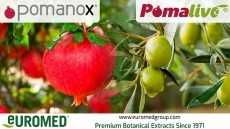New technology targets botanical standardization
allow for the accurate standardization of botanical supplements.
According to the company, its MetaGrid technology would allow the supplement industry to achieve consistency in the standardization of multi-constituent plant-based extracts. This has in the past been a challenge to manufacturers of botanical products, largely due to the wide variations in the potency of plant components based on different external factors. These could include environmental conditions, or the way in which a plant is cultivated. Working with constituents of the same plant species that have different potencies makes it difficult to achieve consistency when standardizing to the unique phytonutrient profile of that species. "Extraction and resolution of components present in complex phyto-extracts is an area that has (…) been plagued by a lack of standard operating procedures that permit adequate and uniform standardization and quantitative estimation of metabolites at a comprehensive level," said Alex Moffett, CEO of Avesthagen. According to Moffett, the metabolite fingerprinting methods commonly employed are focused on less than 10 metabolites that occur in significant proportions within a given extract that may contain several thousand metabolites. "A metabolite profiling approach that is solely focused on major constituents alone will not be able to address the batch-to-batch variations observed in bioactivity, especially in those where the minor constituents are also contributing to the observed bioactivity," he said. The company said its MetaGrid can be used to improve the final profile of multi-ingredient products batch-to-batch and product-to-product. It works through the use of algorithms that search for all retention times within the tolerance range provided by the user. This allows it to accommodate for possible variations in retention time of similar or identical constituents across multiple runs of the same extract, or multiple runs of different extracts that contain the same constituents, said Avesthagen. The company highlighted three key benefits of its system: the simultaneous profiling of over 90 percent of resolvable constituents of a phytoextract; the linear representation of all data points generated; and its ability to allow the analyst to focus on the development of metabolite resolution methodologies that capture the chemo-diversity of complex phytoextracts. "This innovative approach fits well with the concept of bioactivity-guided fractionation since it allows the correlation of observed bioactivity with specific sections of the chromatographic spectrum that represent a fraction of the total metabolite content," said Moffett. The company also claims its new system can be useful to researchers conducting clinical trials on the efficacy of specific plant-based extracts.










